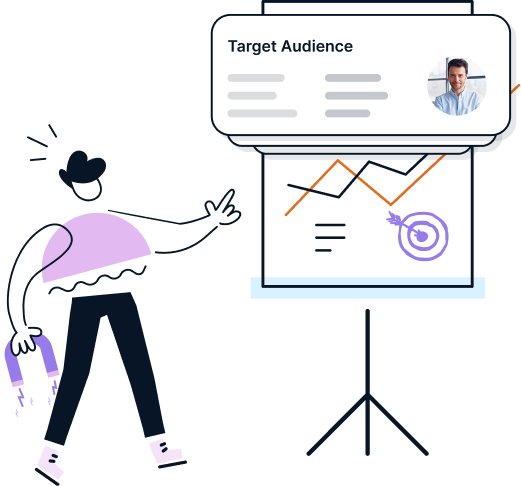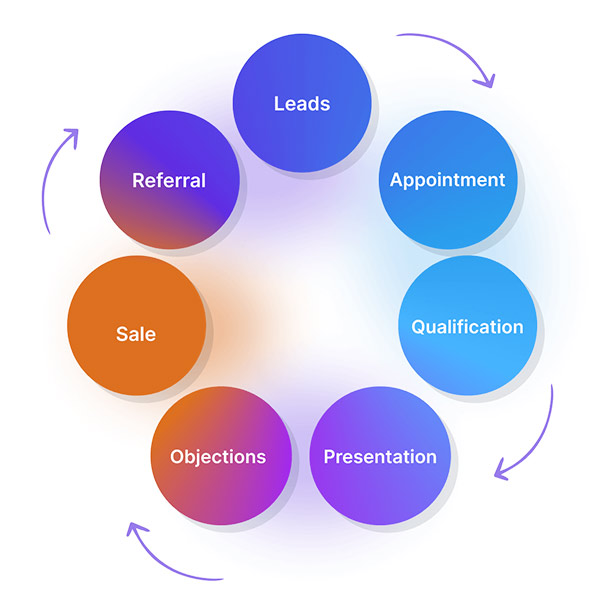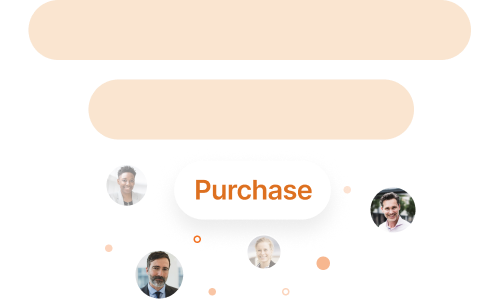#1 Inbound Marketing in Sydney
Learn how a specialist inbound marketing agency in Sydney helps companies grow.



What’s different about inbound marketing services?
In the past, businesses relied on broadcasting their messages to the masses. They used radio, TV, press releases, and telephone books to tell people who they are and what they do.
Those marketing channels still exist.
But inbound marketing supplements and enhances your marketing efforts.
So, what’s different about inbound marketing services?
Broadcast marketing takes a scattershot approach to send a message. It shoots the message far and wide without much consideration to the qualifying, or reaching of a target demographic.
Inbound marketing reverses this approach. Good marketing companies create and optimize content that draws the right customers to your business. It helps you to use existing and emerging digital channels and tools to find qualified customers who want what you offer. These channels and tools include:
Digital
advertising
Digital ads put your company in front of people precisely when they’re searching for what you offer.

Marketing
automation
Marketing automation is the process of using software to streamline your marketing processes.
Search engine optimisation (SEO)
A page that hits #1 is 10 times more likely to get clicked than the 10th result on the first page of Google.
Social media
Social media has the power to enhance your company’s reputation while you build relationships.

Conversion rate optimisation (CRO)
CRO is the process of finding ways to get your prospects to take action. The nature of that action depends on your business. For some, a conversion occurs whenever a customer signs up for a newsletter or email blast.
This targeted approach makes inbound marketing a critical part of your company’s digital transformation. It changes the way you generate leads and find customers, meaning you waste less money (and time) on less effective traditional techniques.
How does inbound marketing in Sydney work?
Discover the benefits of inbound marketing for your business.

The concept behind our inbound marketing in Sydney is simple:
Create value for prospects, and they’ll come to you.
That differs from outbound marketing, which is all about going to potential new prospects and trying to convince them that you’re the company for them. This approach offers the potential for significant benefits that our inbound marketing in Sydney can help you to unlock:
- Lower marketing expenditure
- Quality and qualified leads
- More trust and credibility with your target audience
- Improved marketing insights backed by data
Think of inbound marketing as the digital approach to reaching your customers. You use data to ensure you’re targeting ONLY the types of people who you know have a need for your product. And as your campaigns develop, you collect more data that helps you to optimise the campaign for further efficiency.
How inbound marketing accelerates the sales cycle
To discover how our inbound marketing agency in Sydney speeds up your sales cycle, we must first consider what the cycle looks like without it.
The absence of any inbound marketing infrastructure can mean you haven’t built trust with future customers. This can make things hard for your sales team when they begin to speak to prospects. Consequently, the onus falls on your sales team to learn about the customer’s needs and pain points before they can switch focus to selling your product. This learning process takes time, which slows your sales cycle.
Inbound marketing lets you learn a lot about your customers before you sell to them. For example, through the lead scoring technology available in leading customer relationship management (CRM) software you may be able to determine:
- Which digital platform they came from eg; Google, Facebook, Youtube or Instagram?
- Which advertisement they responded to
- What content on the website they have consumed
- How many times they visited the website in the last 180 days
- What actions they take on the website or landing page
This is very powerful data. It can help you quickly decipher a prospect’s pain points, meaning your salespeople can hone in on that challenge when speaking to the customer.

This simple change accelerates your sales cycle enormously. It also has a transformational effect in the following ways:


Qualify Your Leads

Think about all of the extra steps that come with outbound marketing; the cold emails, the direct mail, the telemarketing to cold databases. In each case they know nothing about your company, so trust has to be established from the ground up each time. Worse yet, you know next to nothing about each customer. That means your team has got to spend time qualifying the prospect to see if they’re a good fit for your business.
Inbound marketing shortens your sales cycle by delivering qualified customers. Your content and digital assets are targeted towards specific types of people. As a result, you know that any prospect that comes through inbound channels knows who you are, and has engaged with your business already.

A More Intelligent Sales Team

Combining inbound marketing services with modern marketing tools creates a more informed and intelligent sales team.
Your salespeople can see where a prospect came from and know they can speak to the prospect’s pain points as soon as they jump on a call.
Combine that knowledge with the right tools, and your sales team will be better placed to deliver the right messages and offers based on where the customer is on their journey.

Filling Your Sales Funnel

Finding new sources of qualified leads is a challenge for any business. Inbound marketing companies provide the qualified leads you need to fill your sales funnel.
Again, we’ve used the word “qualified.”
Once a qualified lead enters your funnel, they’re far less likely to drop out. They already want what you offer.
Consequently, you can focus your efforts on engaging the prospect rather than trying too hard to sell what they may not really want anyway.
What our clients are saying



FAQs
Will inbound marketing take over cold calling?
It’s unlikely that inbound marketing will completely replace cold calling, as both have their own unique strengths and weaknesses.
Inbound marketing is a strategy that focuses on attracting potential customers to a company’s website or social media presence through the creation of valuable and informative content.
This approach is often more cost-effective and less disruptive than cold calling and can be a powerful way to build brand awareness and establish credibility.
On the other hand, cold calling allows sales representatives to directly connect with potential customers and build personal relationships, which can be valuable in certain industries and sales situations.
Cold calling also provides an opportunity for real-time feedback and allows sales reps to assess a prospect’s interest and needs in a way that inbound marketing may not be able to.
It’s likely that the use of cold calling will continue to evolve and change as technology advances and customer behaviour shifts, but it’s unlikely to disappear entirely.
Instead, companies are likely to adopt a blended approach that combines both inbound marketing and cold calling, depending on the needs of their specific industry, target audience and sales goals.
How is customer service important in inbound marketing?
Customer service plays a critical role in inbound marketing as it can greatly impact a customer’s overall experience with a company. Here’s how:
Building trust: Providing excellent customer service can help establish trust and credibility with potential customers. It demonstrates a company’s commitment to providing a positive experience and can increase the likelihood of customers becoming loyal, repeat customers.
Improving customer experience: Good customer service can turn a negative experience into a positive one, helping to build customer loyalty and satisfaction. This can lead to more positive word-of-mouth recommendations, which are a key component of inbound marketing.
Providing valuable information: Customer service representatives can provide potential customers with valuable information about a company’s products or services, helping them make informed purchasing decisions. This information can also be used to inform and improve a company’s inbound marketing strategies.
Gathering customer feedback: Customer service interactions provide a valuable opportunity to gather customer feedback and insights, which can be used to improve products, services and inbound marketing strategies.
In conclusion, customer service is an important component of inbound marketing as it can directly impact a customer’s experience with a company and inform future marketing efforts. By providing excellent customer service, companies can build trust, improve the customer experience, provide valuable information and gather valuable customer insights.
Inbound marketing vs outbound marketing - which is better?
Inbound marketing and outbound marketing are both valuable marketing strategies, but the best approach depends on a company’s specific goals and target audience.
Here are the pros and cons of each:
Inbound marketing:
Pros:
Cost-effective: Inbound marketing strategies are often less expensive than outbound marketing, as they rely on content creation, search engine optimisation (SEO), and social media engagement to reach potential customers.
Non-intrusive: Inbound marketing is less disruptive than outbound marketing, as it allows potential customers to find a company on their own terms, rather than being interrupted by unsolicited advertising.
Builds trust and credibility: By providing valuable and informative content, companies can establish trust and credibility with their target audience, which can lead to long-term relationships.
Cons:
Slower results: Inbound marketing is a long-term strategy that requires consistent effort and investment, and results may take longer to see compared to outbound marketing.
Requires specialised skills: Inbound marketing requires specialised skills in areas such as content creation, SEO, and social media management, which can be a challenge for companies with limited resources.
Outbound marketing:
Pros:
Immediate results: Outbound marketing often generates immediate results, as it targets customers directly through advertising, cold calling, and direct mail.
Wide reach: Outbound marketing can reach a large audience quickly and efficiently, making it a useful strategy for businesses looking to generate leads and sales quickly.
Cons:
Costly: Outbound marketing can be expensive, especially for businesses that use traditional forms of advertising such as TV, radio, and print.
Intrusive: Outbound marketing can be seen as intrusive and disruptive, which can negatively impact a company’s reputation and relationship with their target audience.
In conclusion, there is no one-size-fits-all answer to the question of which is better, inbound or outbound marketing. The best approach depends on a company’s specific goals, target audience, and resources.
Many companies find success with a blended approach that combines both inbound and outbound marketing strategies.
How do WebBuzz's inbound marketing services help companies grow?
Our inbound marketing agency in Sydney helps companies grow by attracting the right kind of traffic to their websites, converting that traffic into leads, and nurturing those leads to the point of sale. Their strategies are tailored to draw in customers who are most likely to be interested in what you have to offer, thus increasing the efficiency and effectiveness of marketing efforts.
What is the first step to working with WebBuzz on inbound marketing?
The first step to engaging with WebBuzz for inbound marketing services is to sign up for a free assessment. This evaluation will help identify your current marketing strategies, pinpoint areas for improvement, and align your business goals with the inbound marketing tactics that will best achieve them.
How long does it take to see results from inbound marketing?
Inbound marketing is a long-term investment that builds momentum over time. Typically, you might start seeing preliminary results within the first three to six months, with more significant and sustained results developing over six months to a year. The timeline can vary depending on various factors including your industry, the current online presence, and the consistency and quality of the efforts.
What makes WebBuzz different from other digital marketing agencies?
We utilize advanced analytics to monitor the effectiveness of your campaigns and continuously optimize our efforts based on real data. Furthermore, our team is dedicated to staying on the cutting edge of digital marketing trends, ensuring that your business remains competitive in a rapidly evolving digital landscape


